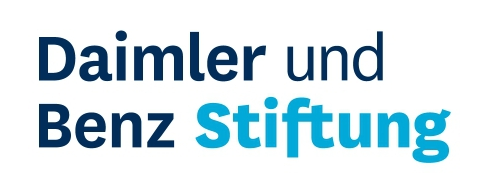I am very pleased to be allowed to announce that the scientific network “Adverbial clauses and subordinate dependency relationships” has been approved by the German Science Foundation (DFG). The project is supposed to start on March, 1st, 2021, and is expected to run over three years. Six thematic workshops on adverbial clauses are planned at five universities in Germany. The network consists of 20 international members and 12 invited speakers. More information can be found here.
News & Updates
Subordinate clauses – press release
The Daimler and Benz Foundation reports on the ongoing project Adverbial clauses as non-canonical adjuncts

You can find the press release here, here and here. Enjoy the reading!
Subordinate clauses in the media
RTL Lëtzebuerg and Luc Marteling, director of Zenter fir d’Lëtzebuerger Sprooch, promote and advertise the project Adverbial clauses as non-canonical adjuncts funded by the Daimler and Benz Foundation. One of the aims of the project is to investigate selected types of subordinate clauses in Luxembourgish, in particular complements embedded under the verbs versprichen ‘promise’ and dreeën ‘threaten’ as well as adverbial clauses introduced by the complementizer ansonsten ‘otherwise’ occurring predominantly in administrative legal contexts [link] [pdf] [tweet].
“Infinitives at the Syntax-Semantics-Interface” – Paperback edition
I’m thrilled to announce that the volume “Infinitives at the Syntax-Semantics-Interface. A Diachronic Perspective” published with Mouton de Gruyter in 2017 appeared as a paperback two weeks ago and is available for 20€.
New special issue: “Habituality from a Typological and Diachronic Perspective”
My colleague from the Hebrew University of Jerusalem, Nora Boneh, and I are happy to announce that our special issue on Habituality from a Typological and Diachronic Perspective appeared in the journal STUF: Language Typology and Universals / Sprachtypologie und Universalienforschung. We are certain that contributions collected in this special issue offer novel insights into the notion of habituality as a linguistic universal and its relation with other grammatical categories across typologically unrelated languages.
New project: “Adverbial clauses as non-canonical adjuncts”
 I feel honored to be allowed to announce that my project Adverbial clauses as non-canonical adjuncts has been approved by the Daimler and Benz Foundation. The project intends to pursue a new line of research by examining two patterns of adverbial clauses that have not received much attention in the literature: i) adverbial clauses having a complement clause shape and ii) adverbial clauses modifying DPs and behaving like relative clauses. Accordingly, the project output is expected to substantially contribute to the ongoing theoretical debate on adverbial clauses and gain novel insights into a better understanding of what has been referred to as subordination.
I feel honored to be allowed to announce that my project Adverbial clauses as non-canonical adjuncts has been approved by the Daimler and Benz Foundation. The project intends to pursue a new line of research by examining two patterns of adverbial clauses that have not received much attention in the literature: i) adverbial clauses having a complement clause shape and ii) adverbial clauses modifying DPs and behaving like relative clauses. Accordingly, the project output is expected to substantially contribute to the ongoing theoretical debate on adverbial clauses and gain novel insights into a better understanding of what has been referred to as subordination.
Notification of Acceptance: Conference Talk
I am very happy to be allowed to announce that my talk entitled From purposiveness to prospectivity has been accepted for the conference Formal Diachronic Semantics 3 to be held at the University of Oslo (Norway) in September of 2018.
Course evaluation: University of Cologne
In the summer semester 2017, I taught a basic course at the University of Cologne. It was entitled “Einführung in die Sprachwissenschaft” (Introduction to Linguistics) and designed for undergraduate students. I asked students to evalute the course. Here you can find their comments.
Notification of acceptance: Talk on the development of prospective adverbial clauses
I’m thrilled to be allowed to deliver a talk at the conference Meaning in Flux: Connecting Development, Variation, and Change at Yale University in October of 2017. My talk will be on the development of prospective adverbial clauses. The main aim is to show that prospective adverbial clauses usually develop out of purpose adverbial clauses. I’ll illustrate that this development is a cross-linguistic diachronic pattern attested in many languages, and elaborate on the question of what semantic and pragmatic factors pave the way for this development.
New collaboration: An introduction book
I am very happy to announce that Augustin Speyer and I decided to write together an introduction book to the non-finite syntax of German. Both of us have taught courses on selected aspects of the German infinitival system and experienced that an introduction book to this topic is missing and needed. We intend to fill this gap. We haven’t decided yet in which publishing house the book will be published. Stay tuned for more information!